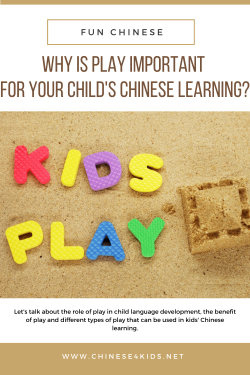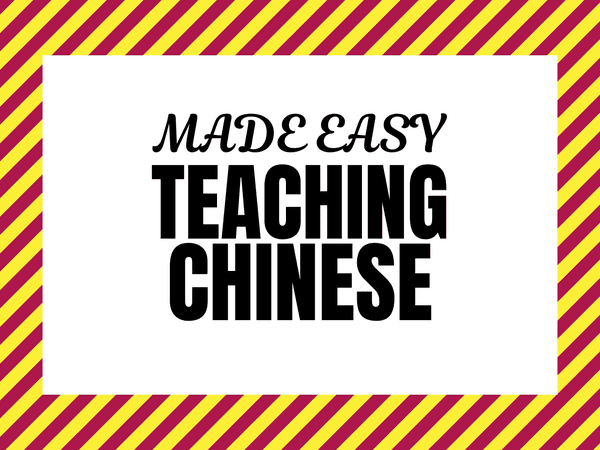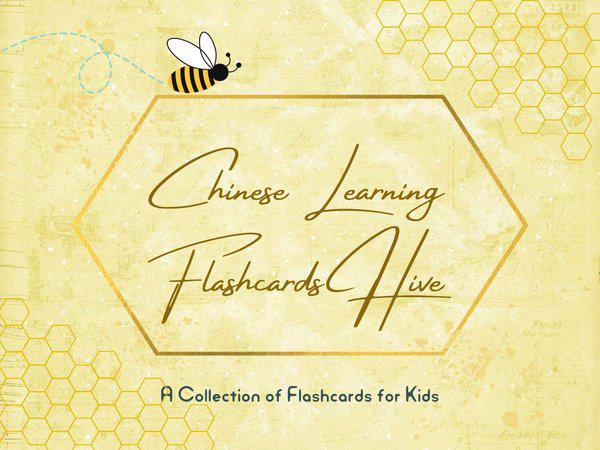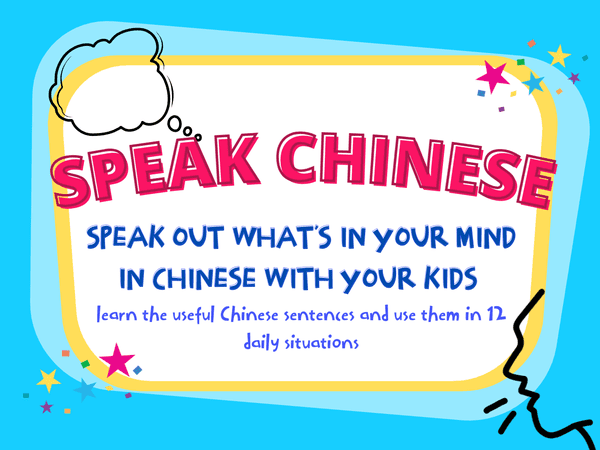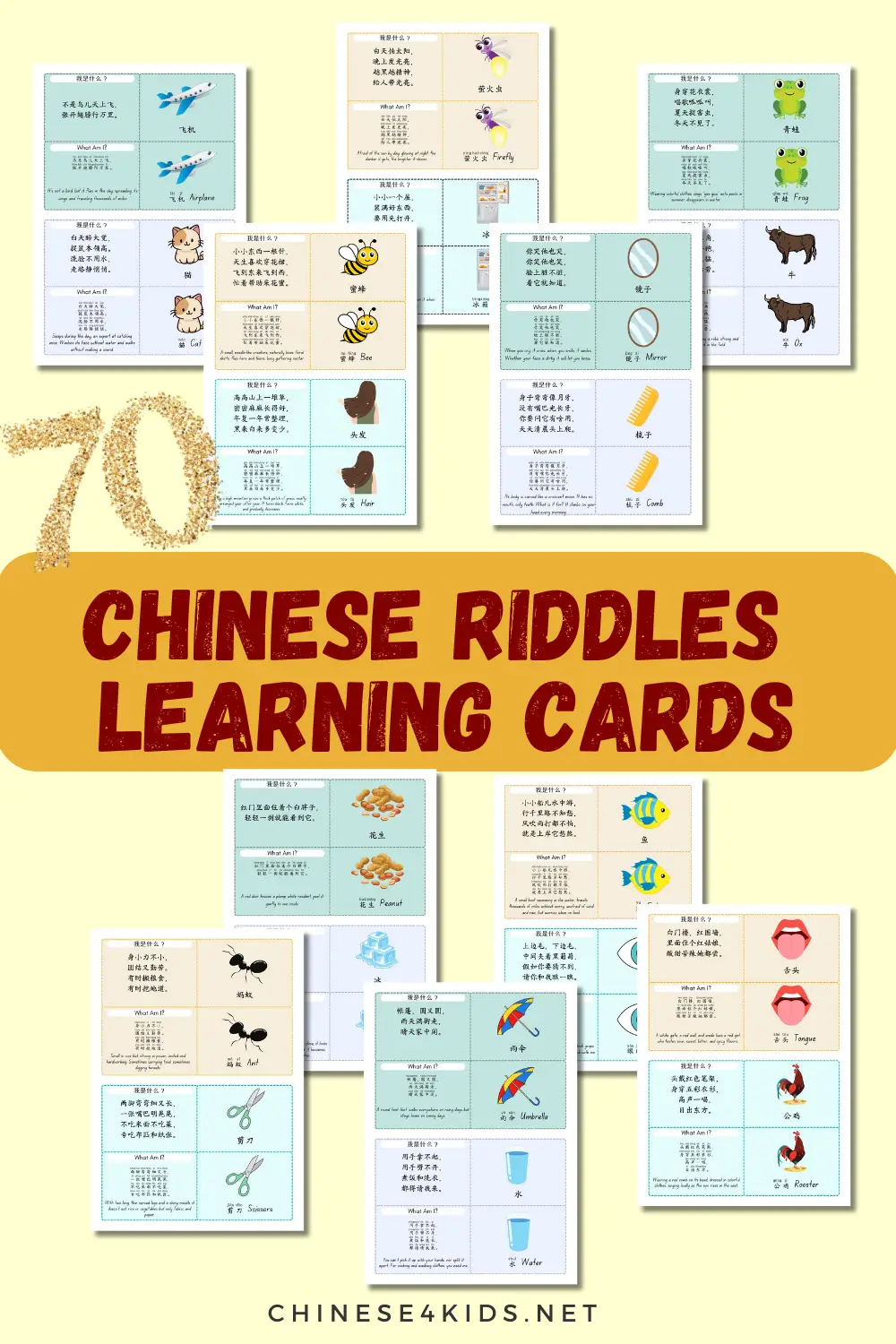
Home » Mandarin Chinese teaching resources » Why Is Play Important for Your Child’s Chinese Learning?
Why Is Play Important for Your Child’s Chinese Learning?
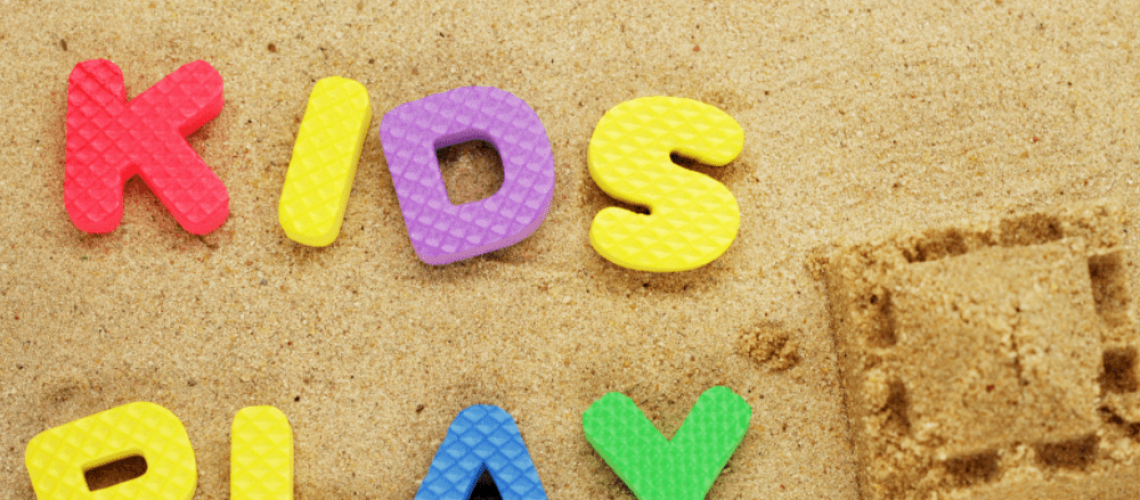
Children love playing. They always find time for playful activities, no matter where they are or whether they have friends around or not. For kids, plays act as a key to the doors that open to a new world of discoveries. Through the discoveries, kids develop their language skills. If Chinese is the language, play is important for a child’s Chinese development.
The role of play in child language development
Play is essential in every child’s growth. From the basic concepts such as colors, numbers to skills such as cutting, pasting, and coloring, kids make progress during their play. When playing with other children, they further develop social skills such as listening, expressing, taking turns, sharing, even seeking solutions if conflicts occur. These mental, emotional, physical, and social skills children learn through play help them achieve developmental milestones that will prove to be useful as they grow up into adulthood.
For kids’ Chinese language development, play provides opportunities for children to listen, speak, read and write. They progress the stages of Chinese language development in terms of understanding and using the Chinese language in either guided or free play activities.
Benefits of Play
There are so many benefits of play. Let’s list some of them:
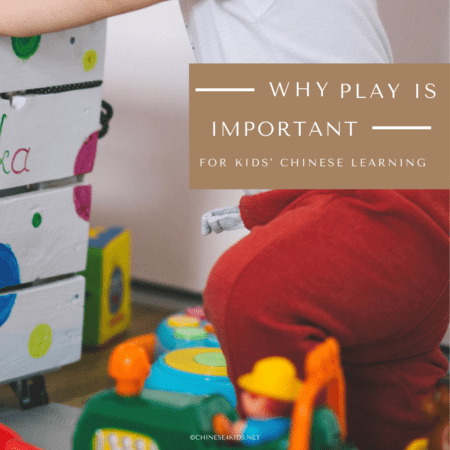
It Encourages Mental Development
Play unlocks children’s curiosity and opens their eyes to exploration and adventure. Activities like role play or pretending play encourage kids to observe things happening around them in daily situations and act it out. Children demonstrate their understanding, communication, and judgment in terms of making decisions through play.
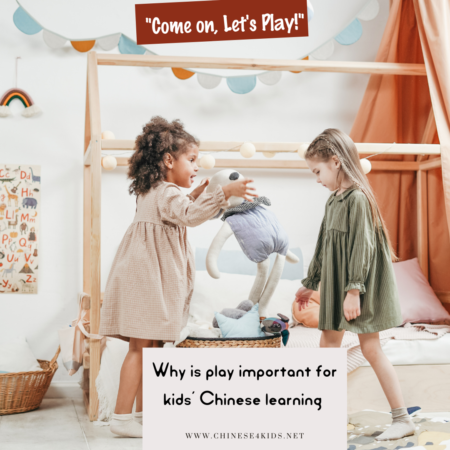
Language obviously plays a big role during the process. In Chinese learning, kids learn how to act in a situation, how to request or offer verbally. It may take some time. But the more kids play, the more quickly they develop these skills.
Play Enhances Physical Development
Children talk, laugh, run, walk during play; playing is a means for them to expend their excess energy.
Children also cut, color, paste during play, which also develops their motor skills, improves balance, endurance, and coordination.
It Helps Emotional/Social Development
A great benefit of play is that it makes children feel good. When kids are in a relaxing environment, they tend to learn better. As play brings enjoyment to children, they learn quickly to interact with others and learn skills such as taking turns, playing fair and following instructions, etc. Chinese words and sentences can be easily taught and used in interactive plays as kids learn how to express themselves during the play. They learn to use some fixed phrases that are commonly used in various situations such as “谢谢” “请”.
Different Types of Play For Chinese Learning
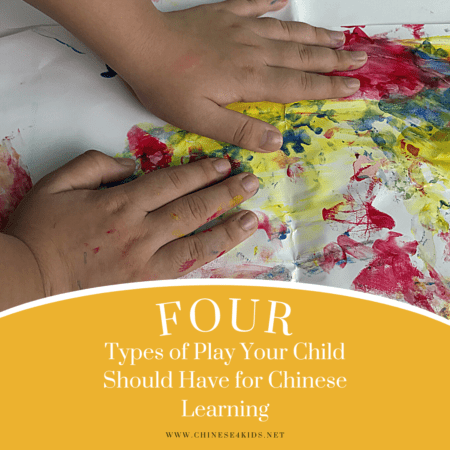
There are several forms of play. As kids grow, they tend to have preferences in terms of play, which majorly was because of their unique styles of self-expression.
Playing takes many forms. Each child is unique and has different styles of self-expression. As they grow, you will observe that they have their own preferences when it comes to playing. It is best to understand what they want so you can better connect with them, and help them learn better.
Physical play
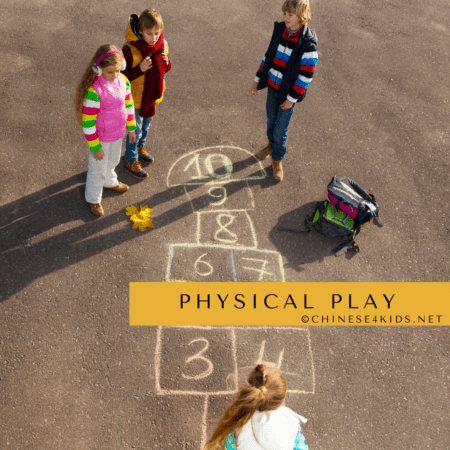
As its name suggests, children move when they have a physical play: they walk, jump, run and play games such as chase, hide-and-seek, and tag. This type of play is largely a way for children to develop a spatial understanding of themselves and the world around them. It has a social nature as well as it involves other children in the play. Of course, it also provides exercise that is important for their growth.
Expressive Play
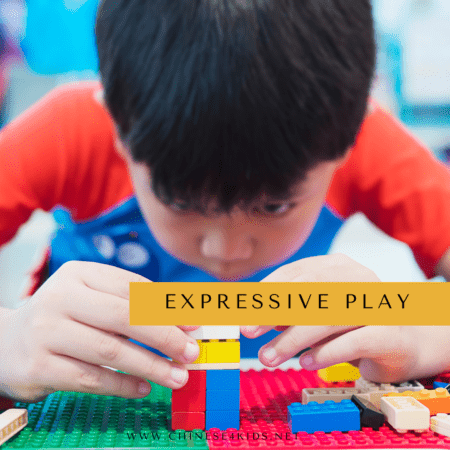
Children create, draw, write, sing, build, and tap with materials such as paint, blocks, instruments, paper, scissors, clay, water, sponge, beanbags…
This type of play provides opportunities for children to express feelings through creative activities. The possibilities for their creation are endless.
In kids’ Chinese learning journey, we can give them plenty of materials for them to get involved in such type of play. On top of that, get involved and play with the kids. This is a great chance not only to have quality time and engage in your child’s development but also to identify what areas of play your child enjoys and learns the best.
Imaginative and Pretend Play
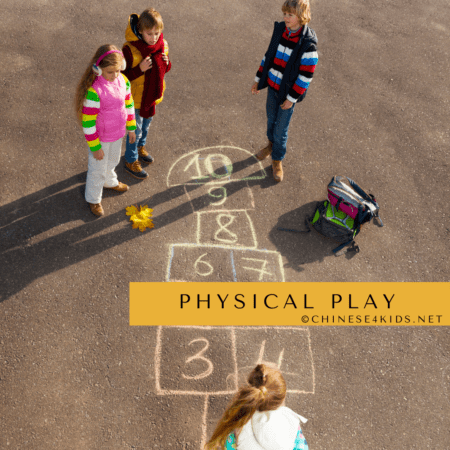
All kids enjoy imaginatively and pretend play. It is the birthplace of creativity, regardless it is done in a group or on one’s own. It might be a role play such as dress-up activity, or cooking and serving, or police catching a thief, or any scenario that children can act out what their imagination can reach. In such play, kids develop their understanding of their place in the world.
Social Play
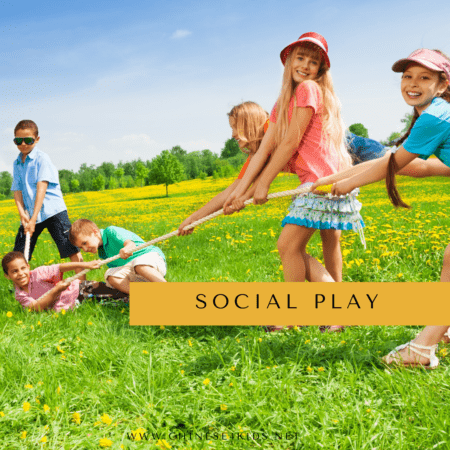
As children grow, they start to look for playmates at around the age of three. Social play helps children establish social norms. As they engage in group play, they develop interpersonal skills such as taking turns, sharing, problem-solving, being polite, decision making, etc. that will help them have meaningful relationships as they grow up.
For Chinese learning, we can create a positive environment and give kids different scenarios for them to act out in different social situations.
Want to have a taste of how we can embed play into Chinese teaching and learning? We have a 5-Day Playful Mandarin Challenge that runs from Monday till Friday. Would love to have you join the fun!
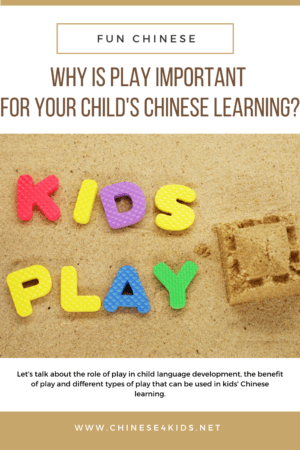
You May Also Be Interested:
- Chinese4kids Membership – a portal for busy Chinese teachers and parents
- Chinese learning flashcards Hive – a flashcards library that with regular additions of new quality Chinese learning flashcards
- Chinese learning worksheets collection – Also a part of Chinese4kids membership, this collection is for teachers and parents who want to have access to engaging worksheets and activity sheets created for kids learning Mandarin Chinese as an additional language
- Speak Chinese with Kids Course
- Chinese Vocabulary Made Easy Course
Recent Posts
Join Our Membership
Enroll to A Course
Buy An eBOOK
Our Posts
